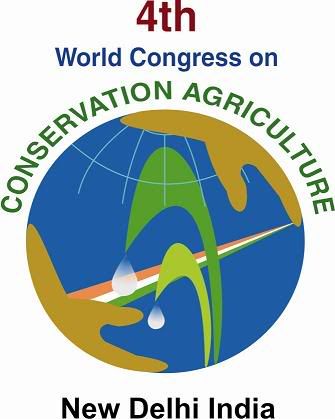 4-7 February 2009 New Dehli. 4th World Congress on Conservation Agriculture: Innovations for improving efficiency, equity and environment
4-7 February 2009 New Dehli. 4th World Congress on Conservation Agriculture: Innovations for improving efficiency, equity and environment Over a thousand agricultural experts from around the world, who had gathered in Delhi for the fourth congress on conservation agriculture, deliberated an issue that is vital for sustaining high-growth agriculture without clashing with the environment.
Of late, modern agriculture has come in for considerable flak for causing possibly irretrievable damage to the earth's natural resources, notably soil and water, and for vitiating the environment through harmful greenhouse gas (GHG) emissions. Conservation agriculture, involving some novel farm practices, is said to be an antidote for most of the ill-effects of intensive farming. For, it aims to not only reduce the damage to natural resources and the environment but actually reverse it. The resource conservation practices conceived for this include minimum or zero tillage, letting crop residues get back into the soil instead of burning them, immaculate land leveling to ensure the even spread of water, and applying only need-based fertiliser and water to crops.
The benefits of such practices are many, and somewhat obvious. They protect soil health to enhance its fertility, prevent the environmental pollution caused by burning of crop residues, save on the labour and energy required for repeated land tilling, and reduce the use of water in agriculture, sparing it for other purposes. The biggest advantage is that by letting biological residues get back into the soil, it transforms agriculture from a carbon emitter to a virtual carbon sequester by converting crop land into a carbon sink.
Reference:
Business Standard / New Delhi February 9, 2009 Now, conservation farming
The fourth World Congress on Conservation Agriculture was hosted by the Indian Council of Agricultural Research and the National Academy of Agricultural Sciences and sponsored, among others, by FAO and the International Fund for Agricultural Development. [FAO Press Release] [FAO Website on CA] [Congress Website]